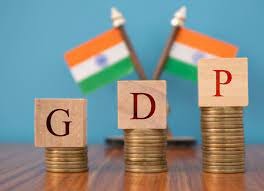Credit card users may now choose their billing cycle and due date
When a credit card payment is due on the final day of the month, have you ever found it difficult to pay it? This usually occurs in the last few days of the month when money is tight and the following month’s paycheck has not yet received. The due date is set at the moment the card is issued; there is currently no flexibility or way for the cardholder to change the due date. Cardholders may now choose when to make their payments due.

RBI has requested that card issuers provide cardholders with the flexibility to choose any day as the opening or closing day of the billing cycle at least once, for the benefit of the cardholders. Usually, credit card bills have a payback term of 10 to 15 days, or a payment due date that is based on the billing cycle date. Therefore, the due date will fall between the 10th and the 15th of the month if the bill producing date is set to the 1st or 2nd of the month.
The good news is that both new and current cardholders will have the ability to choose their billing cycle and, therefore, the due date.
The billing cycle date may be altered more than once for both new and current cards. In order to better manage their finances, numerous cardholders may now synchronize their due dates and adjust the billing cycle to fit their cash flow. This will assist cardholders in managing their financial affairs, says Khaitan & Co. partner Moin Ladha.
Customers should arrange their payment cycles so that there is enough money in their bank account to cover both the outstanding balance on their card and other monthly household costs. Cardholders may avoid paying penalties and interest on their card purchases by doing this.
Another regulation that allows cardholders to choose their preferred card network has been established by the RBI and will soon be made accessible to cardholders.
In India, there are several well-known and accredited card networks, including American Express, Diners Club International, MasterCard, Visa, and RuPay. Up until now, cardholders were not allowed to choose the card network.
In the future, card issuers will allow prospective cardholders the choice to choose from a number of card networks at the time of issuance. At the time of the subsequent renewal, this option could be made available to current cardholders. According to Ladha, “Card Issuers (banks/non-banks) must give their eligible customers the choice to choose from multiple card networks at the time of issue.”
There will be an exception for American Express cards, however. This new regulation does not apply to card issuers who provide credit cards on their own approved card network. This implies that card issuers that use their own approved network, such as American Express, will not be subject to this new regulation. As a result, these card issuers won’t be forced to provide cards from any other network, Ladha continues.
Using a credit card for purchases is a kind of debt that the card issuer lends to the user. Interest is applied to the outstanding balance if it is not completely paid by the card’s due date.
The RBI has directed card issuers to advise customers about the consequences of making just “the minimum amount due.” To warn cardholders about the risks of paying only the minimum amount due, a legend or warning stating that “Making only the minimum payment every month would result in the repayment stretching over months/years with consequential compounded interest payment on your outstanding balance” needs to be clearly displayed in all billing statements. It should be explicitly stated in the Most Important Terms and Conditions (MITC) that the “interest-free credit period” is terminated if there remains an unpaid amount from the previous month’s payment.






